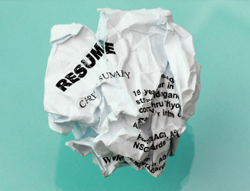Will Smoking Cost You Your Job?
07 September 2012

It’s simple economics. It costs employers more to keep a smoker on board than a non-smoker. And ObamaCare doesn’t change that. Indeed, it may make it even easier for employers to calculate what employees who smoke cost them – not just in terms of increased absenteeism, but even more directly, in terms of increased premium.
A provision in the new health care law, the Patient Protection and Affordable Care Act, expressly allows insurers to charge employers much more for people on group health care plans who are smokers.
The natural result: Widespread discrimination against smokers.
Is discrimination legal?
From time to time I hear people, when confronted with some tale of some perceived workplace injustice gasp “that’s discrimination!” and assume that just because a company’s personnel decision may involve discrimination it must be illegal. That is simply not the case.
Yes. Discrimination is legal, except where that discrimination screens applicants and employees out based on membership in a specific class designated by law. Nationally, federal law protects employees and job applicants against discrimination on the basis of race, creed, religion, sex, national origin, or veterans status. The Americans With Disabilities Act (ADA) further protects those with physical or developmental disabilities, provided they are capable of safely doing the job with reasonable accommodation. That’s it.
State law may add some additional protected classes to those listed under federal law – such as gays, lesbians and transgenders.
Beyond that, though, company’s discriminate all the time. For example, they discriminate against those with felony records, drug addicts, the lazy, the incompetent, drunks, those who are habitually tardy and those known to steal office supplies. And yes, the also routinely discriminate against the overweight.
There is nothing in federal law that prohibits companies from discriminating against smokers, though some 29 states have passed legislation restricting the practice. In reality, though, where smoker discrimination lawsuits have been filed, the courts have generally ruled in favor of the company, not the smoker.
According to John Banzhaf, a law professor at George Washington University and one of the architects of differential premiums for smokers going back to the 1980s, every employee who smokes costs the employer “more than $10,000 in additional expenses that are ‘totally unnecessary”.
Some employers have actually overtly banned even off-the-job smoking, including the World Health Organization, Scotts Miracle-Gro, the City of Atlantic Beach, Florida, Crown Laboratories and the Cleveland Clinic.
Expect employers to take heed of those costs.
If, during the interview process, you let slip that you are a smoker, you will do yourself no favors. What are the tells?
• Yellow nicotine-stained fingernails.
• Smell of tobacco. Smokers can’t smell it, but it’s very noticeable to non-smokers within a few feet.
• A glimpse of a pack of cigarettes or a lighter in your purse or pockets.
• Being sighted in the parking lot, grabbing a quick smoke before or after your interview.
For your state’s specific laws regarding smoker discrimination in the workplace, click here.
What should you do?
• Quit smoking. Geez. How many hints do you need?
• Don’t smoke prior to your job interview. The smell’s a giveaway.
• Wash your hands thoroughly before the interview.
• Don’t smoke, even if your interviewer invites you for a smoke.
The job market is tough. There’s no need to make it tougher. Smoking is plenty tough on your wallet, too, all by itself. If you just lost your job, you can perhaps take advantage of the change in routine to break the smoking habit. Seize the day. Carpe diem.
Hourly updated employment opportunities in our CAREER section!




